Speech therapy is a very common form of therapy that instead of working on the mind or the body, it works on:
- Expressive language, or the use of words, sentences, and gestures to convey information to other people; clarity in speech
- The ability to understand words that are spoken
- The ability to use your voice in general
- Early and developing speech
- Speech therapy is mainly known for work with articulation, volume, fluency, and pitch. These are also known as “speech impediments”, and many who have them, like a serious stutter, can benefit greatly from speech therapy.
All of these subjects are extremely important for everyone to learn, but it’s tenfold for kids. After all, the younger the age, the more receptive they are to information. So how can speech therapy help your child? Well let’s go over the specifics.
One thing I should mention, though: speech therapy is usually meant for children with existing speech problems and issues with understanding words. There is no harm in helping your child develop language skills, but if you go to a speech therapist with a child that is perfectly able to articulate and understand everything that is spoken, then there might not be much the therapist can do for them.
How to Know Your Child Needs Speech Therapy
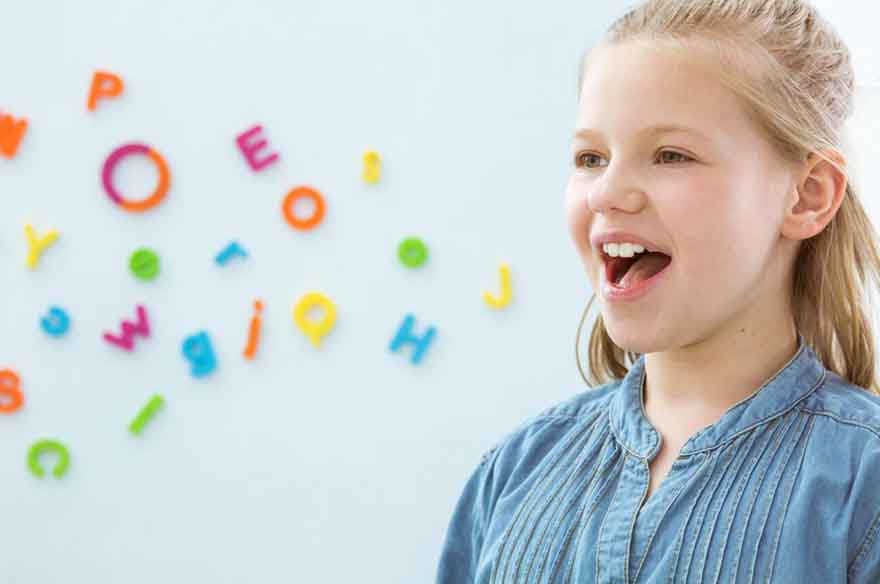
Now, technically, no one needs speech therapy, but there are certain telltale signs that might cause some problems in your child’s speech in the future. So what types of speech difficulties are best helped by this type of therapy? Well, here are a multitude of things speech therapy can help your child with.
- Stuttering. Everyone stutters every once and a while, but there comes a point where it’s extremely noticeable. If your kid continues to stutter even up into school and around friends and classmates, that’s a sign they may need speech therapy.
- Difficulty swallowing. Many don’t think of this when they think of speech therapy, but it works all the same. If your child has difficulty swallowing, talking to a speech teacher will be best.
- Toddlers who are delayed in developed speech. If your toddler has difficulties speaking or pronunciations past the normal point, then you may want to see a professional about it.
- Apraxia. This is defined by difficulty with producing certain syllables and sounds, something that most would consider a “speech impediment”. Not all can be worked out, as some of them are caused by physical quirks in the mouth.
- Aphasia. This is a difficulty with language expression and the understanding of language itself, all stemming from a brain injury. While not guaranteed to make speech perfect, it’s surprisingly effective.
- Cognitive-communication disorders. This, like aphasia, is also caused by damage to the part of the brain that controls problem-solving, memory, listening, and, you guessed it, speech.
- Problems with articulation. This is like saying “woll” instead of “roll”, or “tree” instead of “three”.
- Problems with expressive language, or using language used to get ideas across. This is like a child having a hard time stringing a sentence together or describing things.
- Difficulties with processing and comprehending words that are said to them. While speech therapists are mainly known for helping children using their words and articulation, they can also work well with teaching kids to process language. After all, language is their area of profession, both with giving communication and in understanding it.
- Dysarthria. This is defined by slowed or slurred speech. It’s a condition that stems from the muscles controlling speech weakening from certain nervous systems disorders or a stroke.
- Problems with resonance. This, essentially, means that a health condition is affecting your oral or nasal cavities, thus altering the way one speaks. Such health conditions can be swollen tonsils or a cleft palate; anything that changes the structure of one’s mouth or nose to a noticeable degree.
Does Speech Therapy Require a Professional?
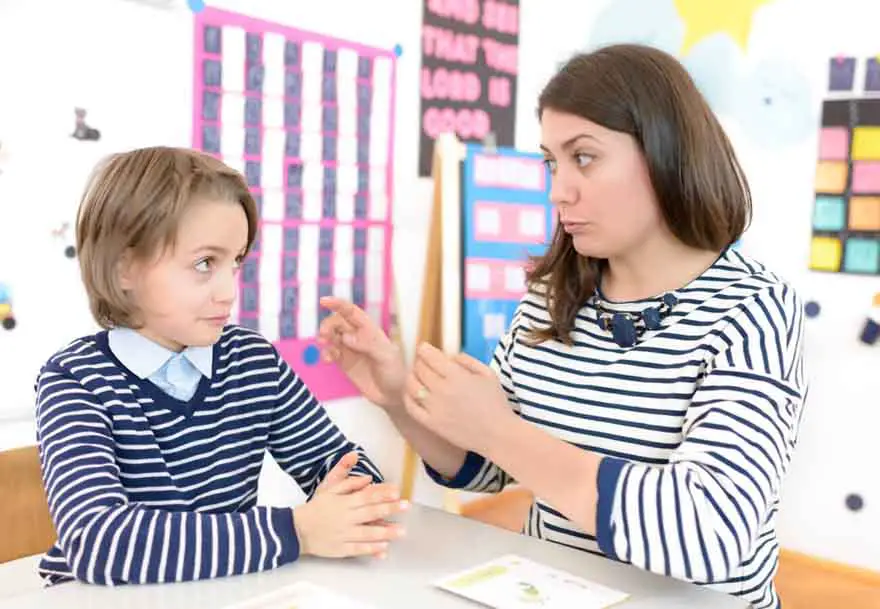
I hear this sometimes by moms and dads who would like to take the training into their own hands, which makes sense. Not everyone is really willing to shell out the money for one, and some children react badly to therapy, like children with autism, ADHD or PDA etc, who often have delayed speech development and can be extremely wary of strangers at times.
However, if you want the best results for your child, finding a speech-language pathologist (the proper name for a speech therapist/teacher) is usually the best option. They’re trained professionals that need a license to practice, just like all other therapists. They know what they’re doing.
There are many speech-language pathologists (SLP) who work with children, too, so you’re bound to find someone who can charm your child with ease.
However, this isn’t to say that you shouldn’t play a part in it. After all, one of the biggest ways to really digest what one’s learned is through practice at home. Ask your child’s speech therapist what you can do at home to help your child develop the language skills they need to have an easier time at school and with friends.
What Activities Are Done In Speech Therapy?
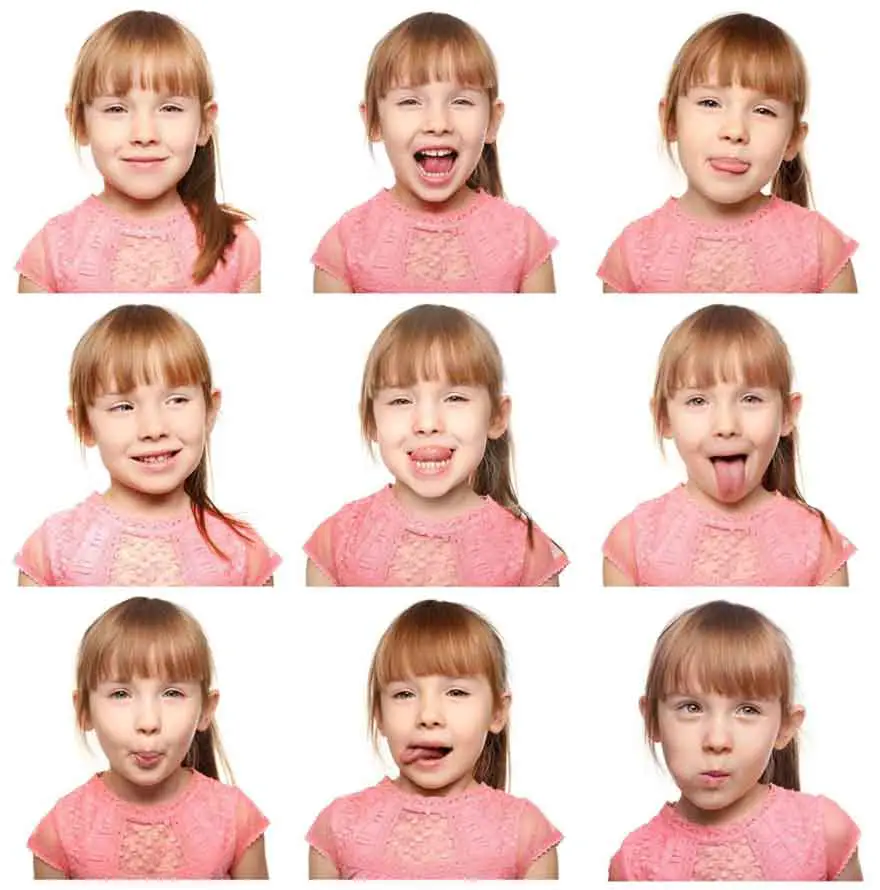
The following activities are ones that may be recommended for your child:
- Facial movements. These are done to improve your child’s motor skills, and since the shape of one’s mouth and lips defines how words are said and articulated, it’s greatly helpful.
- Word games. These are especially helpful for young children, as it makes learning fun. Speech therapy can be frustrating at times for kids, especially for very young children, as learning these lessons requires lots of focus, may take awhile, and can be repetitive at times. Word games will keep them on the ball and on the road to understanding what they’re being taught
- Exercises with tongue and mouth. This is the bread and butter of speech therapy, as most speech impediments are caused by these two things. These will include having your child make certain shapes with his mouth and move their tongue on certain positions to properly articulate words and sounds.
- Reading aloud. This is specifically for children who may have a speech disorder. This is as simple as it can get: having your child read straight out of a book or paper and watching for certain mistakes. Not to mention, it’s an easy way to practice at home. Simply place the book before your child and make sure to listen for any mistakes. You may not be able to correct them, but you can inform the speech pathologist about your child’s difficulties with certain phrases.
At What Age Should My Child Get Speech Therapy?
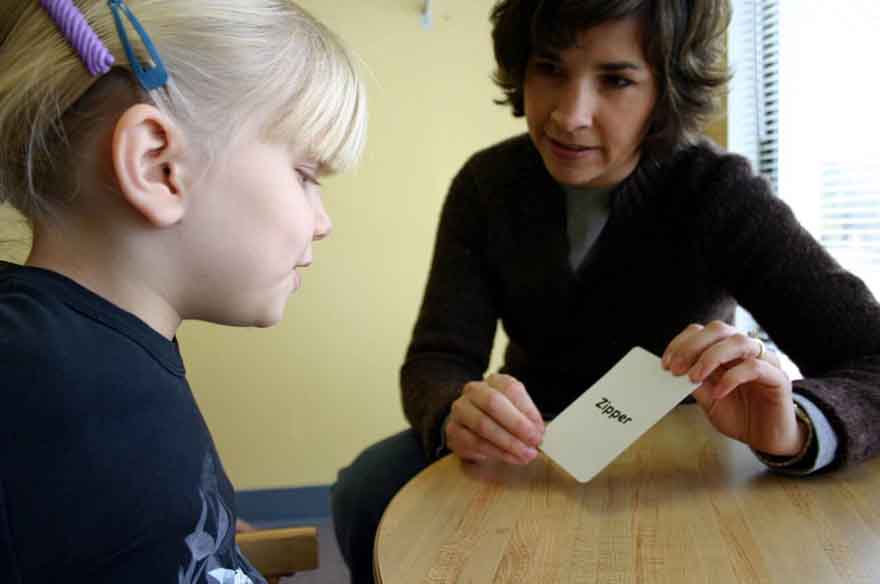
As I said before, the younger the child, the more likely chances of success. I think you know I don’t mean that you should bring an infant to a speech pathologist, of course, but make sure you monitor your child’s language skills.
If you notice something may be off, like a consistent stutter, trouble understanding what you’re telling them, or may just be delayed in language skills altogether, you may want to get an evaluation done just in case. Get a plan down, understand what your child will be taught, and go from there.
Should Speech Therapy Be In Your Child’s IEP?
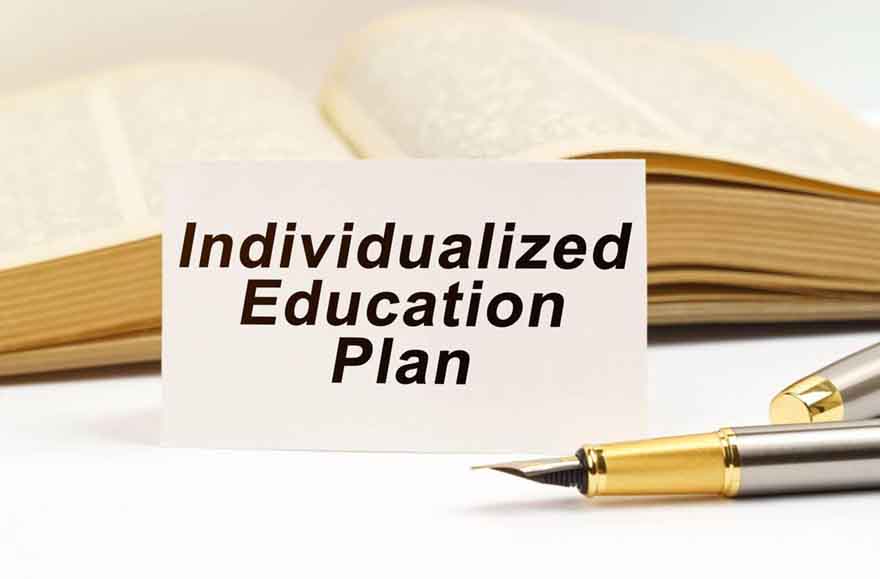
For those unfamiliar, an Individualized Education Plan (IEP) is a legally binding document that gives a firm plan on exactly what special education services will be given to your child and why it helps.
As you may have guessed, an IEP is intended for children with special needs or who require specialized education for other reasons.
Should a speech pathologist be a part of an IEP, though? Well, it depends on your child’s development in language, but most would say yes. After all, a speech pathologist would be able to monitor your child’s progress in language and speech development as time goes on, as well as deciding exactly how speech therapy should be administered to your child. Essentially, the experience will be tailored for your child and your child only.
Of course, there is speech therapy outside of school, which is how most people go about it, but it would be more time on top of an existing schedule. You can also pay for a speech pathologist to come to your home and give your child lessons that way, kind of like a tutor. If you choose to have a speech pathologist as a part of your child’s IEP, be sure to ask questions throughout the year so you can monitor your child’s progress yourself. It’s important that you know exactly what your child is getting, even if you trust the speech pathologist with her job.
There is one last thing of note regarding speech pathologists and IEPs, though. You should get a full evaluation from the pathologist first, as well as a second opinion, like you should with any major commitment. This is because IEPs are legally binding, so pulling your child out from the speech pathologist’s lessons may not be so easy. Also, be sure to check that your insurance will cover their services, as speech therapy does qualify under many private insurances.







